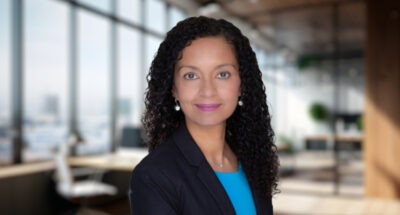
Busting the myths of M&A: 4 steps to success
Busting the myths of M&A: New research reveals why old merger strategies fail and how fresh thinking can lead to lasting value for both sides of the deal....

by Maik Meusel , Karl Schmedders, Maude Lavanchy Published June 2, 2023 in Finance • 5 min read
2022 was a turbulent year for financial markets, with stocks and bonds shedding more than $30 trillion in value after accounting for inflation as tighter monetary policy and geopolitical tensions spooked investors. As a result, investors are seeking alternative types of investment to generate returns and diversify their portfolios beyond traditional stocks and bonds.
An asset class that is increasingly popular is venture capital. Norway’s sovereign wealth fund asked for a rule change at the start of 2023 to allow it to invest in unlisted equities to boost long-term returns. This follows on the heels of Icelandic authorities which agreed in May 2020 to allow pension funds to own up to 1% of their assets in venture capital funds. And since January 2022, Swiss pensions funds have also been able to invest up to 5% of their assets in venture capital. What are venture assets and how do they compare to traditional asset classes?
Despite the changing regulatory landscape, venture capital remains a mystery for a number of investors. Venture capital (VC) is a type of private equity financing that is typically provided to early-stage, high-potential, and high-risk companies with the potential for significant growth. Investing in venture capital funds is a common way to invest in venture assets as it provides exposure to a portfolio of startups, thereby reducing risk compared to investing in a single startup. However, this typically comes at a higher cost in terms of fees.
Historically, venture capital investments have generated returns that outperform traditional asset classes such as bonds and stocks. A paper published in 2005 found a mean return of 59% between 1987 and 2000. In the same period, the S&P 500 had a 15.9% return and Treasury bill a 6.8% return.
However, the returns from venture investments are more volatile and less predictable than those from more established markets, while investments also tend to be less liquid giving investors less flexibility to frequently update their strategies.
Historically, venture capital investments have generated returns that outperform traditional asset classes such as bonds and stocks.
As a result of these challenges, venture assets may not be suitable for all types of investors. Those with a long-term horizon and a willingness to hold their investments for several years, regardless of market conditions, are better equipped to handle the liquidity risk associated with venture investments.
Investing in alternative assets in addition to traditional ones can also offer some diversification benefits. For example, the American pension fund Virginia Retirement System reported that its public stock and fixed income investment declined in 2022, while its real assets and private equity generated positive returns (21.7% and 27.4% respectively), during the same duration. Overall, around 20% of the investment holdings in American public pension funds were allocated to private equity and real estate assets.
One of the reasons behind Iceland’s decision to allow pension funds to hold venture assets was to support its “financial system, its stability and the economy.” Research has shown that even though companies supported by venture capital make up less than 0.5% of newly established firms in the United States each year, they account for almost half of the entrepreneurial enterprises that successfully go public. Investing in venture assets thus has the potential to spur innovation and can be a way to make a positive impact on society, for example, by investing in companies working to solve important problems.
Europe is home to a thriving startup scene, with cities like London, Berlin, and Paris emerging as major hubs for innovation. Likewise, Switzerland is considered one of the most technologically advanced and innovative countries in the world: it tops the IMD World Talent Ranking and occupies second place in the World Competitiveness Ranking. Yet, Switzerland also has faced challenges in providing sufficient funding for startups. Aware of these funding gaps, the amount of invested capital in Swiss startups has increased eightfold since 2013 and the Swiss authorities recently announced the launch of a Swiss Innovation Fund to support startups in the growth phase.
Europe is home to a thriving startup scene, with cities like London, Berlin, and Paris emerging as major hubs for innovation.
Despite these recent efforts to provide adequate funding for young firms, there is still plenty of untapped potential in Europe and Switzerland, especially when compared to North America. According to a 2022 OECD report, a lack of knowledge and expertise represents a common barrier preventing pension funds from investing in venture assets.
Although this asset class can provide diversification advantages and offer promising returns for investors with a long-term horizon, it is important to appropriately assess the risks of these new investment opportunities before engaging in those investments. The recently launched IMD initiative on venture asset management aims to demystify this asset class to help investors seize these opportunities, and thus contribute for a thriving Swiss and European startup ecosystem.

Research Fellow at IMD's Venture Asset Management Initiative
Maik Meusel is a researcher and entrepreneur, currently serving as a Research Fellow at IMD’s Venture Asset Management Initiative. With a B.Sc. in Economics from Humboldt-University, an M.A. from the University of Zurich, and a PhD in Quantitative Business Administration from the same institution, Dr. Meusel has an extensive academic background with a focus on Computational Economics and Finance. Prior to his role at IMD, he worked as a strategy consultant and founded an EdTech startup.

Professor of Finance at IMD
Karl Schmedders is a Professor of Finance, with research and teaching centered on sustainability and the economics of climate change. He is Director of IMD’s online certification course for structured investment and also teaches in the Executive MBA programs and serves as an advisor for International Consulting Projects within the MBA program. Passionate about sustainable finance, Schmedders believes that more attention needs to be paid to on the social (S) and governance (G) aspects of ESG to ensure a fair transition and tackle inequality.

Research Fellow at IMD
Maude Lavanchy is a project manager in corporate strategy at Transports publics de la région lausannoise SA. She was previously a research fellow at IMD Business School in Lausanne for six years, and holds a PhD in Economics from HEC Lausanne as well as a Bachelor of Science and a Master of Science in Economics. She is passionate about sports, economics and new technologies. Her research is part of the field of economics and organizational behavior, and focuses on the impact of artificial intelligence on society and within organization.

July 7, 2025 • by Patrick Reinmoeller, Markus Nicolaus in Finance
Busting the myths of M&A: New research reveals why old merger strategies fail and how fresh thinking can lead to lasting value for both sides of the deal....

April 24, 2025 • by Jerry Davis in Finance
Many regional developers have tried and failed to emulate Silicon Valley’s VC-driven model for innovation. Detroit, the birthplace of Ford, is following an alternative route – with promising results....
 Audio available
Audio available
April 23, 2025 • by Karl Schmedders in Finance
CFOs must drive a financially disciplined way to manage environmental risks amid growing pushback against environmental sustainability efforts, explains IMD’s Karl Schmedders....

April 11, 2025 • by Jim Pulcrano in Finance
IMD's Jim Pulcrano interviews Ruchita Sinha, General Partner of venture capital firm AV8 Ventures, and explores her approach to early-stage investing....
Explore first person business intelligence from top minds curated for a global executive audience